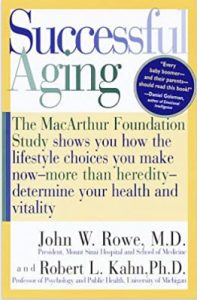

So, why DO we eat when not hungry? Here’s my top 10 list and probably yours, too:
- Someone said we need to eat 3 meals plus snacks every day, or we’ll die.
- We have nothing else to do so we eat.
- We’re addicted to sugar and we just eat more sugar.
- Comfort food is yummy.
- To deal with our stuff.
- To be social – someone took the time to make something, so I better eat it.
- The clock said so or see #1.
- We love the crunchy, salty, savory, sugary, feel and tastes.
- Mom said to clean your plate.
- Those free samples at Costco.
What do all of these have in common? They are related to habits. With the COVID lockdown, there were even more reasons to eat when we weren’t hungry. What else was there to do? A Duke University study says at least 45% of our waking behavior is habitual. While we’d like to believe “we’re in charge”, it turns out we’re driven by our subconscious or unconscious mind. It’s amazing and yet disturbing. Happily, there have been an increase in grounded findings, based on neuroscience that have helped clear a path over the last few years. To build an effective NEW habit, you need five essential components:
- A compelling reason
- A trigger
- A new micro-habit,
- Effective practice
- A plan
Easy stuff, right? Yeah, right!
I used to be a serious grazer, especially at night. I can look back at that time and know the trigger was sitting at the kitchen table after dinner and watching mindless TV.
My compelling reason was to improve me over all health. I now know the snacking did nothing except trigger an insulin response telling my body to store the excess as fat, which it did flawlessly!
The trigger was staying at the kitchen table after dinner. I wanted the crunchy, salty, savory or sweet something.
My new micro habit was to leave the table. Oh duh! Just leave the table. How simple was that? Holy cow.
I’d practice in small chunks. After leaving the table I would find the new habit like walking, reading or watching a baseball game.
When I’d stumble and stay at the table on a Sunday night after a family dinner, I don’t beat myself up and say I’m a loser, I’m resilient and do better the next day. Beating yourself up with shame and guilt is something so many people do. Just let it go.
When you put all this together you’ve created a new habit. Voila! This stuff is simple, but not easy. It’s hard to change your lifelong behaviors and it takes courage to make a change. Go easy on yourself. But do try. Your body and mind will love you!
This is one of the best books on aging ever written. Unfortunately it is often unavailable. Buy it if you can. Also, any of Dr. Helen Harkness’ books. Her Don’t Stop the Career Clock changed my thinking about many things relating to aging and is extremely helpful for mature individuals who want to increase the number of years of mental and physical sharpness.

Leave a Reply